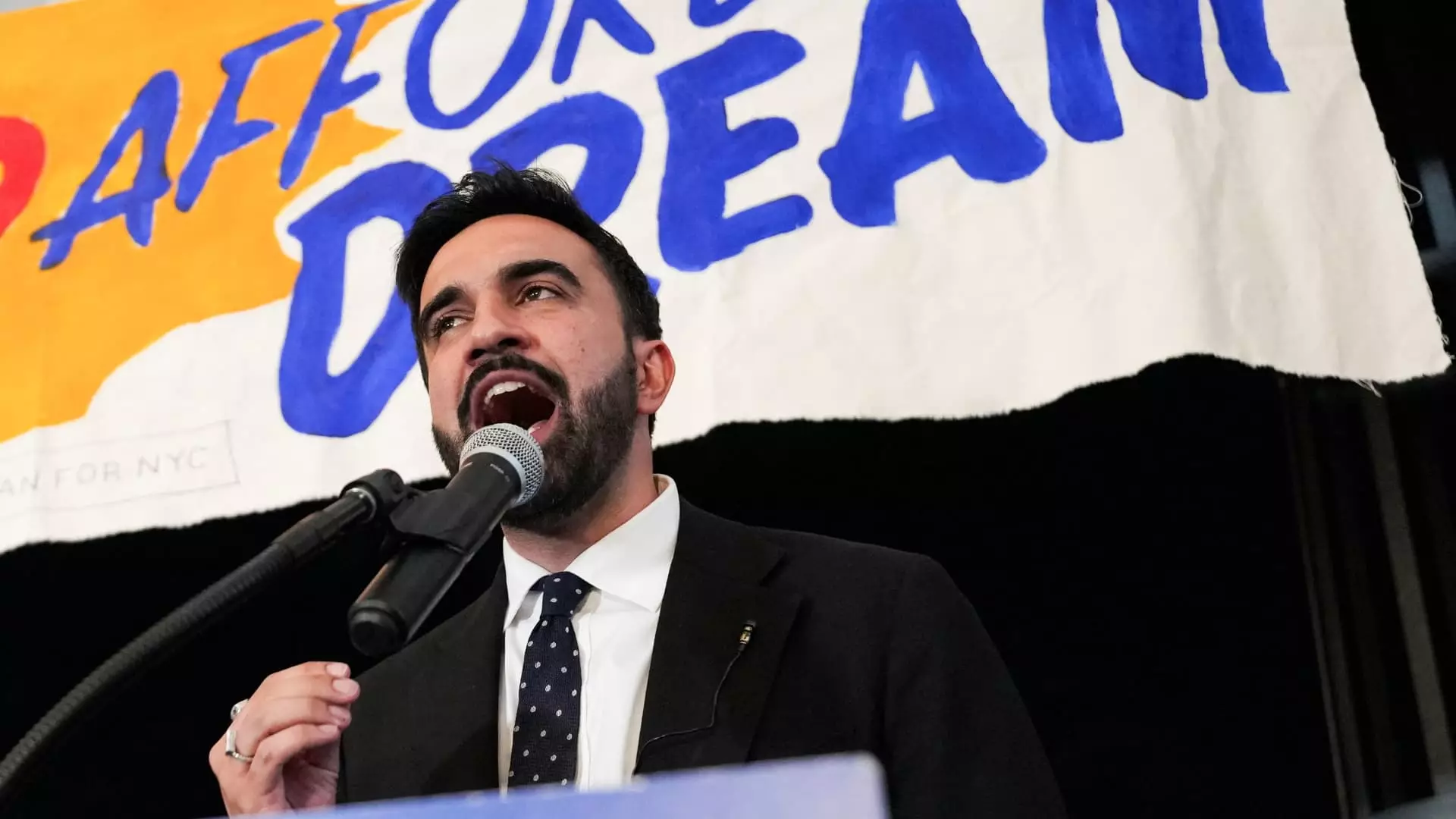In an era defined by polarizing rhetoric and divisive political branding, the recent comments by former President Donald Trump labeling New York City mayoral candidate Zohran Mamdani as “a communist” reveal less about Mamdani’s policies and more about the art of fearmongering in American politics. Mamdani, a democratic socialist and a member of the Democratic Socialists of America, is far from the caricature that Trump and his allies try to paint him as. Attaching the label “communist” to a candidate advocating for practical, progressive reforms amplifies misunderstandings about political ideologies and ignores the nuanced policy positions that resonate with many voters.
Trump’s declaration that New York City will become “a communistic city” if Mamdani wins is not only an exaggeration but also a strategy to destabilize confidence among the city’s diverse electorate and business community. This scare tactic disregards the fact that Mamdani operates within the democratic process, promoting policies like corporate tax increases and rent freezes—which are contentious but hardly revolutionary. His platform reflects broad concerns about inequality, housing affordability, and public transportation, issues that have plagued the city for decades. To brand such reformist ideas as communism betrays either a profound ignorance or a deliberate attempt to stoke division among New Yorkers.
A Shifting Political Landscape—and the Growth of Leftist Ideas
Mamdani’s emergence as a frontrunner in the Democratic primary, with significant grassroots support, signals the continued maturation of progressive movements in major urban centers. His stunning victory over Andrew Cuomo—an establishment-backed candidate despite Cuomo’s own complicated legacy—demonstrates a clear appetite among voters for bold changes to the status quo. The rise of democratic socialism in cities like New York exemplifies a shift towards addressing systemic inequalities with more robust government intervention, not some authoritarian communist takeover.
Critics, many from entrenched business interests and conservative commentators, express worry about their investments and the city’s economic future. Hedge fund leaders, like Phillip Laffront, openly suggest that wealthy residents might flee the city if Mamdani emerges victorious. This kind of capital flight anxiety reveals a deeper tension between progressive social policies and rentier capitalism’s fragile dependence on the comfort of the privileged elite. Viewing the city’s wellbeing solely through such narrow spectacles ignores the long-term costs of inequality and social instability—issues that Mamdani’s platform directly seeks to redress.
The Contradictions in the Incumbent Administration
Ironically, the current mayor, Eric Adams, who has opted to run as an independent, faces his own steep challenges—including dwindling popularity exacerbated by corruption allegations. The controversial dismissal of federal charges against Adams, facilitated under the Biden administration’s Justice Department, has further complicated New York’s political scene. Allegations of political maneuvering and judicial rebuke against prosecutors paint a troubling picture of potential undue influence, undermining trust in governance at a critical moment for the city.
This situation contrasts sharply with Mamdani’s candidacy, framed largely around accountability and progressive reform. Adams’ difficulties illustrate that New Yorkers might be ready for a dramatic change—one that moves beyond the failed promises and scandals of recent leadership. Yet, the aggressive right-wing campaign to brand Mamdani as a “communist” seeks to divert attention from these substantive governance questions and reframe the election as an existential battle over ideology rather than policy effectiveness.
Why Fearmongering Hurts Democracy
Reducing Mamdani’s platform to a slur of “communism” does a disservice not only to the candidate but also to the electorate. It diminishes public discourse by substituting genuine debate with simplistic, alarmist narratives designed to frighten rather than inform. While it is entirely legitimate to critique any politician’s ideas, conflating democratic socialism with communism is historically and factually misleading. It feeds a false dichotomy where complex critiques of capitalism must be equated with totalitarianism.
What is truly alarming is that such demagoguery can distract from the urgent issues facing New York City: housing insecurity, public transportation crises, economic inequality, and political corruption. These challenges demand serious, nuanced discussion—and voters deserve to weigh candidates’ platforms without ideological smears clouding judgment. The choice before New Yorkers is not about embracing communism or capitalism wholesale, but about seeking leadership that prioritizes equity, transparency, and sustainable growth.
By attacking Mamdani with exaggerated rhetoric, Trump and his allies may think they are defending traditional values and economic interests. In reality, they risk deepening a toxic political environment that alienates moderate voters striving for pragmatic solutions. The city’s future depends on expanding democratic engagement—not undermining it with reckless accusations that confuse and divide.

